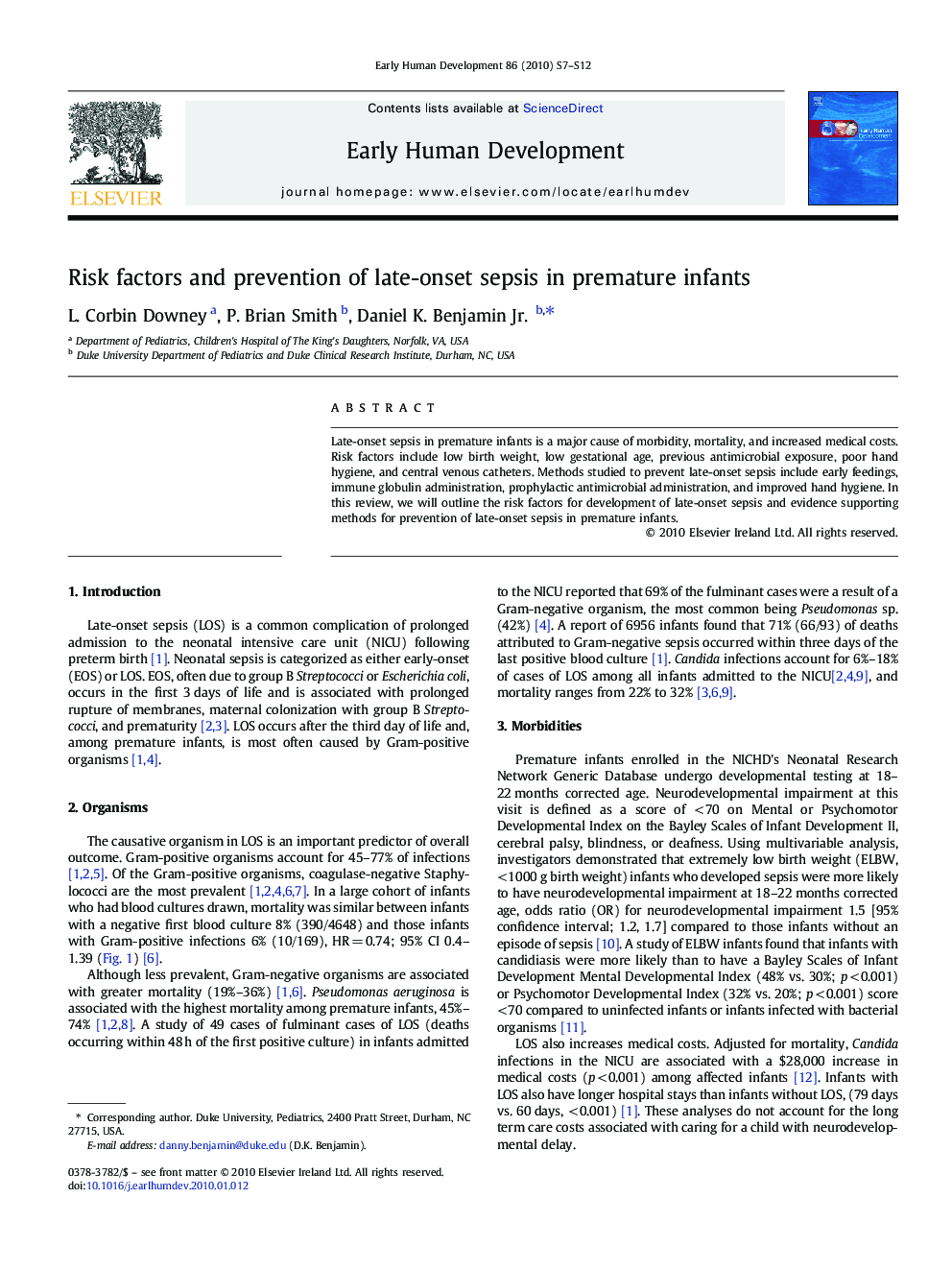| Article ID | Journal | Published Year | Pages | File Type |
|---|---|---|---|---|
| 3916963 | Early Human Development | 2010 | 6 Pages |
Abstract
Late-onset sepsis in premature infants is a major cause of morbidity, mortality, and increased medical costs. Risk factors include low birth weight, low gestational age, previous antimicrobial exposure, poor hand hygiene, and central venous catheters. Methods studied to prevent late-onset sepsis include early feedings, immune globulin administration, prophylactic antimicrobial administration, and improved hand hygiene. In this review, we will outline the risk factors for development of late-onset sepsis and evidence supporting methods for prevention of late-onset sepsis in premature infants.
Related Topics
Health Sciences
Medicine and Dentistry
Obstetrics, Gynecology and Women's Health
Authors
L. Corbin Downey, P. Brian Smith, Daniel K. Benjamin Jr.,
